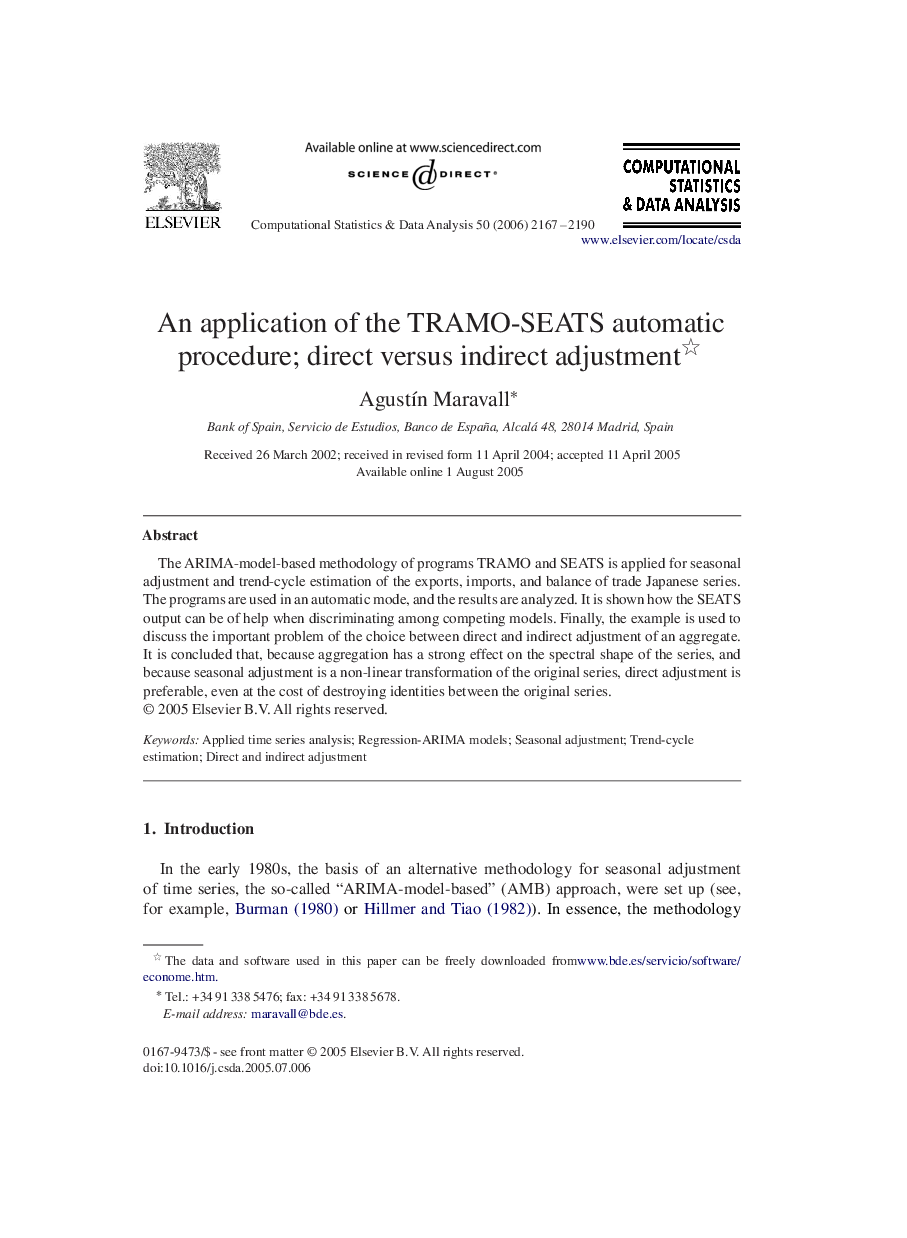| Article ID | Journal | Published Year | Pages | File Type |
|---|---|---|---|---|
| 415742 | Computational Statistics & Data Analysis | 2006 | 24 Pages |
The ARIMA-model-based methodology of programs TRAMO and SEATS is applied for seasonal adjustment and trend-cycle estimation of the exports, imports, and balance of trade Japanese series. The programs are used in an automatic mode, and the results are analyzed. It is shown how the SEATS output can be of help when discriminating among competing models. Finally, the example is used to discuss the important problem of the choice between direct and indirect adjustment of an aggregate. It is concluded that, because aggregation has a strong effect on the spectral shape of the series, and because seasonal adjustment is a non-linear transformation of the original series, direct adjustment is preferable, even at the cost of destroying identities between the original series.
